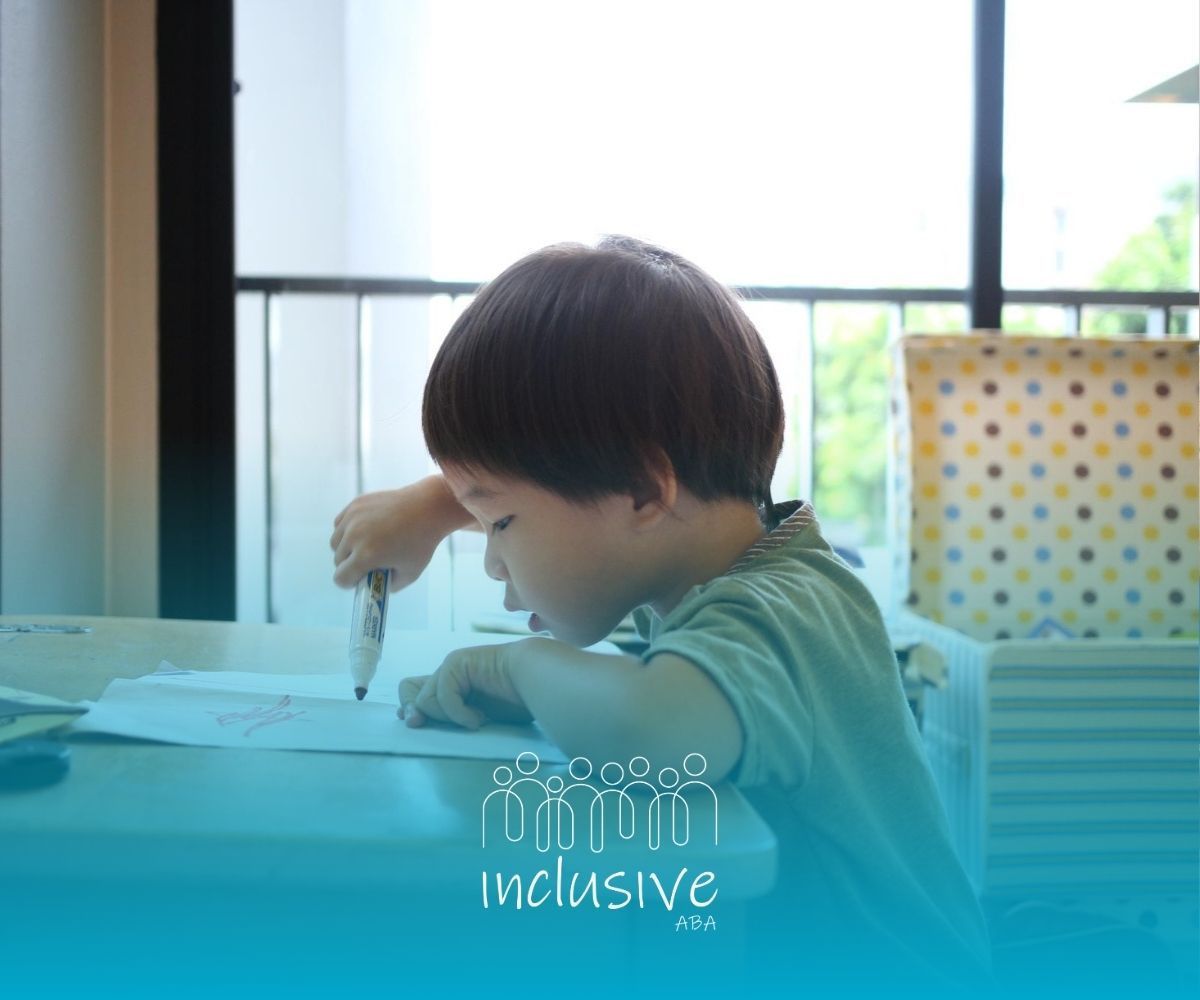
Quality Assurance: ABA Therapist Certification for Exceptional Care
Qualifications for ABA Therapists
When seeking an ABA therapist, it's essential to understand the qualifications that ensure exceptional care. Two critical aspects of these qualifications are BHCOE Accreditation and the RBT Certification Process.
BHCOE Accreditation
The Behavioral Health Center of Excellence® (BHCOE®) Accreditation is a prestigious certification that signifies an organization's commitment to quality and continuous improvement in applied behavior analysis. This accreditation is awarded to ABA therapy providers who meet rigorous standards for clinical and operational quality, regardless of their size or scope.
BHCOE Accreditation serves several purposes:
- Raising Standards: It aims to elevate the standard of ABA therapy care for providers, families, and institutions through accreditation, education, and accessibility.
- Supporting Growth: It helps ABA therapy providers grow their practice while ensuring exceptional patient care.
- Ensuring Quality: It guarantees quality ABA therapy and provides parental peace of mind through a comprehensive provider directory.
For families seeking ABA therapy, choosing a provider with BHCOE Accreditation ensures that the organization adheres to high standards of care and operational excellence. This accreditation is a mark of distinction among ABA therapy providers.
RBT Certification Process
The Registered Behavior Technician (RBT) certification is a crucial credential for ABA therapists. The RBT certification process involves several steps designed to ensure that therapists are well-trained and competent in delivering ABA services.
Training Course Duration
The first step in the RBT certification process is completing a training course. This course typically consists of 40 hours of training, covering essential topics such as:
- Ethics and Professional Conduct
- Measurement and Data Collection
- Assessment and Behavior Reduction
- Skill Acquisition and Documentation
The training course is designed to provide a comprehensive foundation in ABA principles and practices.
RBT Exam Information
After completing the training course, candidates must pass the RBT exam. The exam assesses the candidate's knowledge and skills in applied behavior analysis. It includes multiple-choice questions covering various aspects of ABA therapy.
| Exam Component | Description |
|---|---|
| Number of Questions | 85 |
| Time Limit | 90 minutes |
| Passing Score | Varies by year |
The RBT exam ensures that candidates have the necessary knowledge and skills to provide effective ABA therapy. Successful completion of the exam results in RBT certification, which is a testament to the therapist's competence and dedication to quality care.
For more information on the qualifications and training required for ABA therapists, visit our articles on ABA therapist training and ABA therapist qualifications.
RBT Certification Details
The Registered Behavior Technician (RBT) certification is a crucial step for those looking to become an ABA therapist. This section provides detailed information on the training course duration and the RBT exam.
Training Course Duration
The training course for RBT certification is designed to provide comprehensive knowledge and skills required for the role. The course is 40 hours long and can be completed either online or in-person. The duration to complete the training typically ranges from one to two months.
| Training Mode | Duration |
|---|---|
| Online | 4-8 weeks |
| In-person | 4-8 weeks |
The training covers various aspects of ABA therapy, including ethical considerations, measurement, assessment, skill acquisition, behavior reduction, documentation, and reporting. This foundational knowledge is essential for anyone pursuing a career as an ABA therapist.
RBT Exam Information
After completing the training course, the next step is to take the RBT exam. The exam is administered by Pearson VUE and consists of 75 multiple-choice questions. Candidates are given 90 minutes to complete the exam. The fee for the exam is $45.
| Exam Details | Information |
|---|---|
| Number of Questions | 75 |
| Time Allotted | 90 minutes |
| Exam Fee | $45 |
Once the application is accepted, candidates can schedule their exam online through Pearson VUE. The RBT certification issued by the BACB remains valid for one year and can be renewed annually by retaking the exam and completing a competency assessment.
To maintain their certification, RBTs are required to engage in continuing education units (CEUs) and undergo a competency assessment each year. This ensures that they stay updated with the latest practices and maintain their skills.
BCBA Certification Overview
The Board Certified Behavior Analyst® (BCBA®) certification is a graduate-level certification in behavior analysis. This certification allows BCBAs to provide behavior-analytic services and supervise the work of Registered Behavior Technicians (RBTs), Board Certified Assistant Behavior Analysts (BCaBAs), and other professionals who implement behavior-analytic interventions. This section will cover the requirements for obtaining BCBA certification and the BCBA-D designation.
BCBA Requirements
To become a BCBA, candidates must meet specific educational, experiential, and examination requirements. These requirements ensure that BCBAs are well-prepared to provide high-quality behavior-analytic services.
1. Educational Requirements:
- A graduate degree (master's or higher) in behavior analysis, education, or psychology from an accredited institution.
- Completion of a verified course sequence (VCS) approved by the Association for Behavior Analysis International (ABAI).
2. Experiential Requirements:
- Supervised fieldwork, which includes a minimum of 1,500 hours of concentrated supervised fieldwork or 2,000 hours of supervised fieldwork.
- Supervision must be provided by a qualified BCBA or BCBA-D.
3. Examination Requirements:
- Successful completion of the BCBA examination, which assesses the candidate's knowledge and skills in behavior analysis.
| Requirement | Details |
|---|---|
| Educational | Graduate degree in behavior analysis, education, or psychology |
| Coursework | Verified course sequence (VCS) approved by ABAI |
| Fieldwork | 1,500 hours of concentrated supervised fieldwork or 2,000 hours of supervised fieldwork |
| Examination | BCBA examination |
BCBA-D Designation
The Board Certified Behavior Analyst-Doctoral (BCBA-D) designation is available for BCBAs who have completed doctoral or postdoctoral training in behavior analysis. This designation is not a separate certification but allows individuals to function in the same capacity as a BCBA while highlighting their advanced training.
To apply for the BCBA-D designation, candidates must complete an application, provide required supplemental documentation, and pay a $105 fee. The documentation requirements vary based on the type of doctoral program completed:
1. ABAI-Accredited Programs:
- Documentation of completion of an ABAI-accredited doctoral program.
2. Doctoral Programs from Qualifying Accredited Institutions:
- Documentation of completion of a doctoral program from a qualifying accredited institution.
3. Other Qualifying Doctoral Programs:
- Documentation of completion of a doctoral program that meets specific criteria set by the BACB.
Once the application for the BCBA-D designation is received, the $105 fee is assessed and added to the candidate's BACB account. The review process will not begin until the fee is paid.
| Requirement | Details |
|---|---|
| Application | Complete application for BCBA-D designation |
| Documentation | Varies based on doctoral program type |
| Fee | $105 |
For more information on the skills and experience required for ABA therapists, visit our pages on ABA therapist skills and ABA therapist experience.
ABA Therapist Licensure
Licensure is a critical aspect of ensuring that ABA therapists provide high-quality care. Understanding the specific requirements and the importance of practical experience can help families make informed decisions when selecting an ABA therapist.
State-Specific Requirements
Licensure requirements for ABA therapists can vary significantly from state to state. Some states in the U.S. may require additional licensure beyond the standard certification. It is crucial for therapists to consult with their local licensing board to understand the precise details and ensure compliance with state regulations
| State | Additional Licensure Required |
|---|---|
| California | Yes |
| Texas | No |
| New York | Yes |
| Florida | No |
Practical Experience Importance
Practical experience is a fundamental component of ABA therapist training. This hands-on experience involves working directly with clients, collecting data, and implementing ABA interventions. Supervision by a certified BCBA is necessary to ensure that trainees develop the required skills and confidence to provide effective therapy.
| Experience Component | Description |
|---|---|
| Client Interaction | Direct work with clients to apply ABA techniques |
| Data Collection | Recording and analyzing client behavior data |
| Supervision | Guidance and feedback from a certified BCBA |
Engaging in ongoing professional development is also essential for ABA therapists to stay current with the latest research and practices in the field. The Behavior Analyst Certification Board (BACB) mandates that BCBAs complete continuing education units (CEUs) to maintain their certification, ensuring therapists continuously refine their skills and knowledge.
Professional Development for ABA Therapists
Professional development is essential for ABA therapists to maintain their certification and provide exceptional care. This section covers the importance of continuing education units (CEUs) and the ongoing refinement of skills and knowledge.
Continuing Education Units
ABA therapists, including Registered Behavior Technicians (RBTs) and Board Certified Behavior Analysts (BCBAs), are required to engage in continuing education to stay current with the latest research and practices in the field. The Behavior Analyst Certification Board (BACB) mandates that BCBAs complete CEUs to maintain their certification. RBTs must also complete CEUs and a competency assessment annually to renew their certification.
| Certification Level | CEUs Required | Renewal Frequency |
|---|---|---|
| RBT | 20 hours | Annually |
| BCBA | 32 hours | Every 2 years |
Skill Refinement and Knowledge
Ongoing professional development ensures that ABA therapists continuously refine their skills and expand their knowledge. This is crucial for providing high-quality care and staying updated with advancements in behavior analysis. BCBAs with doctoral or postdoctoral training in behavior analysis may apply for the BCBA-D designation, which allows them to function in the same capacity as a BCBA while meeting all BCBA maintenance requirements.
To apply for the BCBA-D designation, candidates must complete an application, provide required supplemental documentation, and pay a $105 fee. The documentation requirements vary based on the type of doctoral program completed.
ABA therapists must engage in ongoing professional development to stay current with the latest research and practices in the field. This includes attending workshops, conferences, and seminars, as well as participating in online courses and webinars. By continuously refining their skills and knowledge, ABA therapists can provide the best possible care for their clients.
Role of Behavior Analysts
Behavior analysts play a crucial role in the field of applied behavior analysis (ABA), providing essential services to individuals with various needs. Their responsibilities and specializations are diverse, making them invaluable in delivering effective interventions.
Behavior Analyst Responsibilities
Behavior analysts are highly educated and trained in the principles of ABA. They use these principles to assess, analyze, and develop behavior intervention plans for their clients. Their primary responsibilities include:
- Conducting comprehensive assessments to identify the needs and strengths of their clients.
- Developing individualized behavior intervention plans based on assessment data.
- Implementing and monitoring the effectiveness of intervention plans.
- Training and supervising other ABA professionals, such as Registered Behavior Technicians (RBTs).
- Collaborating with families, caregivers, and other professionals to ensure consistency and support across environments.
- Collecting and analyzing data to make informed decisions about treatment adjustments.
Behavior analysts work with a wide range of individuals, including children and adults, who may have developmental disabilities, learning disorders, mental health conditions, or behavioral issues. They help their clients establish social skills and improve daily routines.
Specializations in Behavior Analysis
Behavior analysts can specialize in various areas within the field of ABA, allowing them to focus on specific populations or types of interventions. Some common specializations include:
- Autism Spectrum Disorder (ASD): Many behavior analysts specialize in working with individuals with ASD, developing interventions to improve communication, social skills, and adaptive behaviors.
- Early Intervention: This specialization focuses on providing services to young children, often under the age of five, to address developmental delays and promote early learning.
- School-Based Services: Behavior analysts in this specialization work within educational settings, supporting students with behavioral challenges and collaborating with teachers to create positive learning environments.
- Mental Health: Some behavior analysts work with individuals experiencing mental health conditions, such as anxiety or depression, using ABA principles to address maladaptive behaviors and promote coping strategies.
- Organizational Behavior Management (OBM): This specialization applies ABA principles to improve performance and productivity within organizations, focusing on areas such as employee training, motivation, and workplace safety.
Final Thoughts
Choosing a qualified ABA therapist is essential for ensuring effective and compassionate care. From BHCOE accreditation to RBT and BCBA certifications, each qualification plays a crucial role in maintaining high standards in ABA therapy.
At Inclusive ABA, we are committed to providing top-tier services backed by experienced and certified professionals. Contact us today to learn how our expert team can support your child's journey with ABA therapy!
Sources:
- https://www.bacb.com/bcba/
- https://shccares.com/blog/schools/top-10-benefits-of-working-in-applied-behavior-analysis-therapy/
- https://www.bacb.com/rbt/
- https://www.bacb.com/bcaba/
- https://www.bacb.com/u-s-licensure-of-behavior-analysts/
- https://pmc.ncbi.nlm.nih.gov/articles/PMC10976614/
Looking for Expert Help? We're Here for You!
Our compassionate and skilled team is devoted to enhancing your child's development through customized ABA therapy. Let us partner with you to create a supportive environment for your child's success.
Discover how we can help your family thrive with expert ABA therapy.
Send a Fax
303-616-1189
Mon-Fri: 9Am to 5.30 Pm
Sat- Sun: Closed












